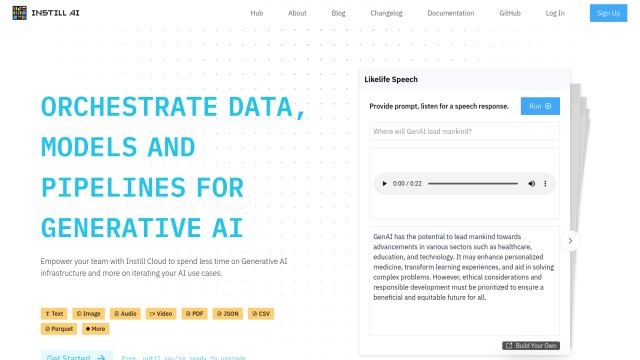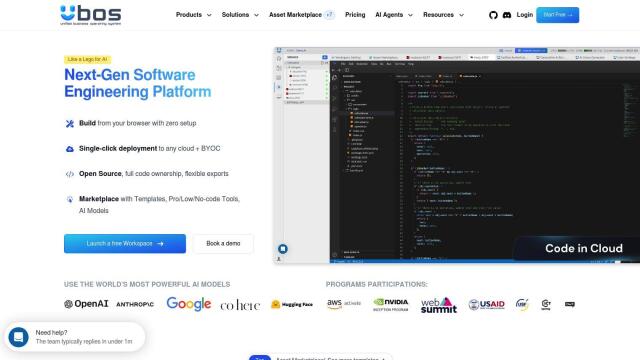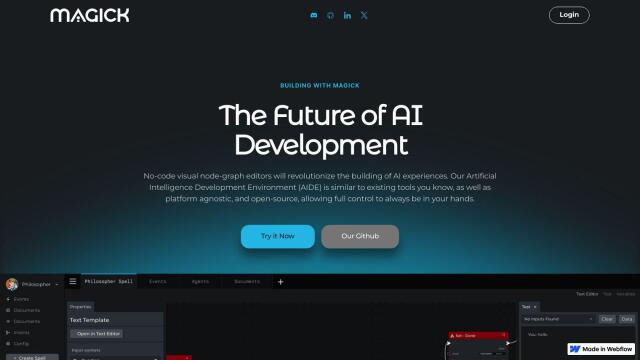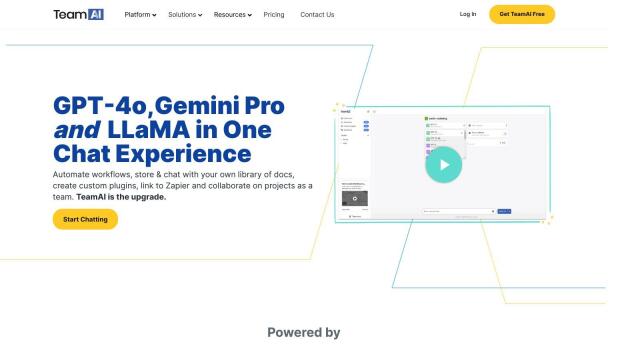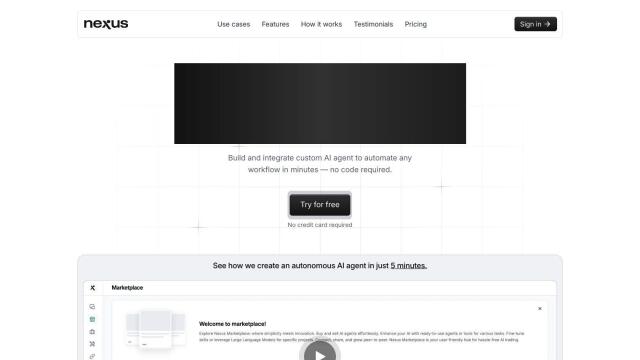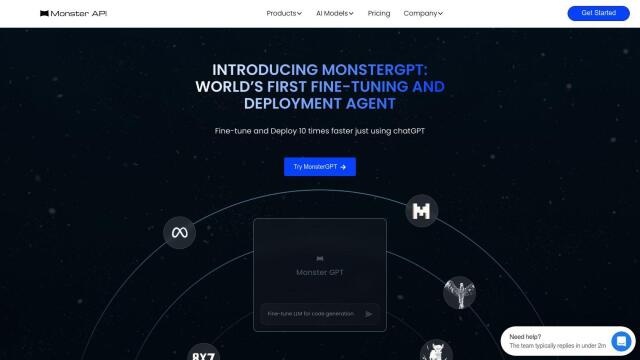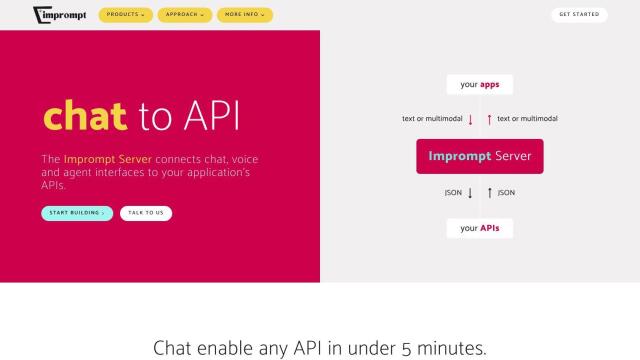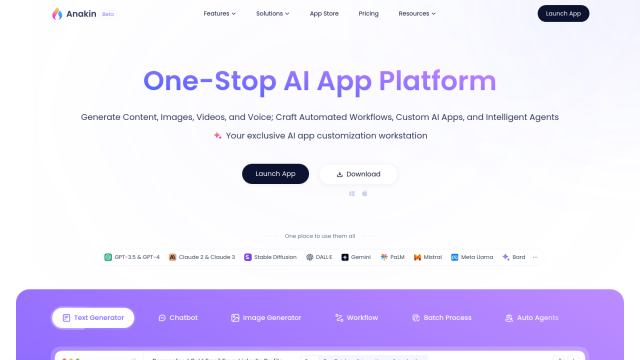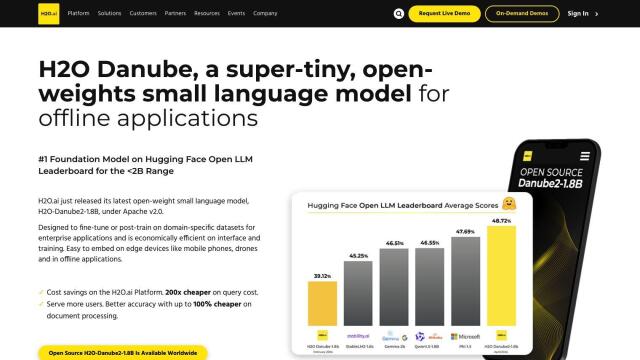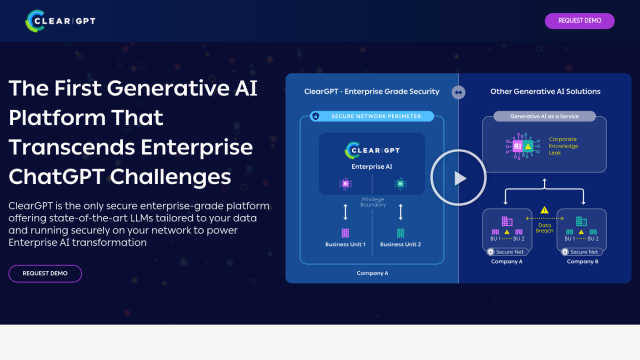Question: I'm looking for an open-source solution to simplify the development of generative AI apps, any suggestions?


Dify
If you're looking for an open-source project to make generative AI app development easier, take a look at Dify. It comes with a visual Orchestration Studio for designing AI apps, tools for secure data pipelines, prompt engineering and model tuning, and customizable LLM agents that can be deployed quickly. Dify is designed to be adaptable for businesses and individuals who want to build AI systems securely and efficiently.

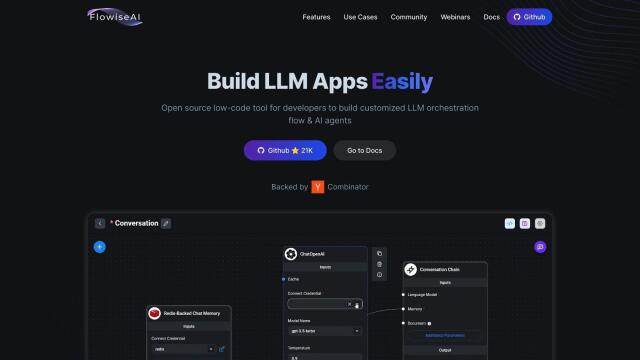
Flowise
Another good option is Flowise, a low-code tool that lets developers create custom LLM orchestration flows and AI agents with a graphical interface. It has integration with more than 100 components and supports more than 100 integrations, so you can build self-contained AI agents and extend LLM apps with APIs and SDKs. Flowise also supports local LLMs and embedded chat widgets, so it's good for a wide range of AI work.


Abacus.AI
If you want a more general-purpose AI foundation, you might want to look at Abacus.AI. It lets developers build and run applied AI agents and systems at large scale using generative AI and other neural network techniques. The platform includes features like ChatLLM for end-to-end RAG systems, AI Agents for more complex workflows, and a range of predictive and analytical tools, so it's good for businesses that want to automate and improve their operations.

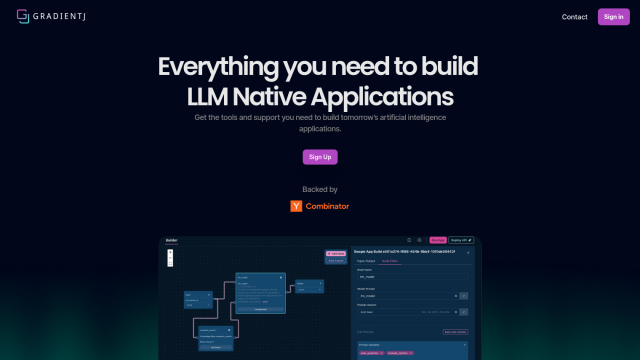
GradientJ
Last, GradientJ is a full-stack platform designed to make it easier to develop LLM-native apps. It includes tools for ideation, development and management of AI apps and supports a range of use cases, including smart data extraction and safe chatbots. With its app-building canvas and team collaboration mechanism, GradientJ is designed to make it easier to develop and maintain next-gen AI apps.





